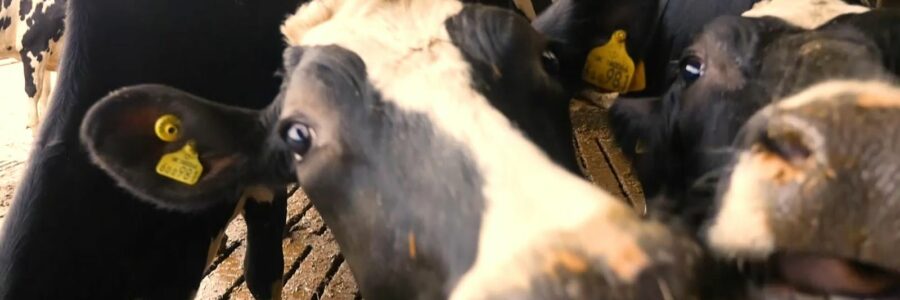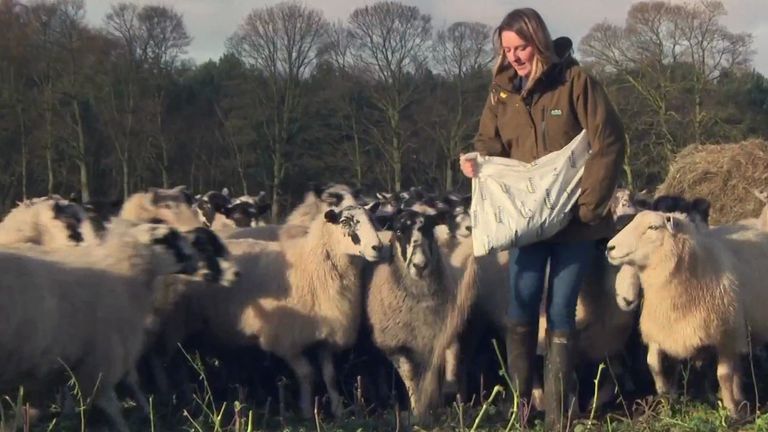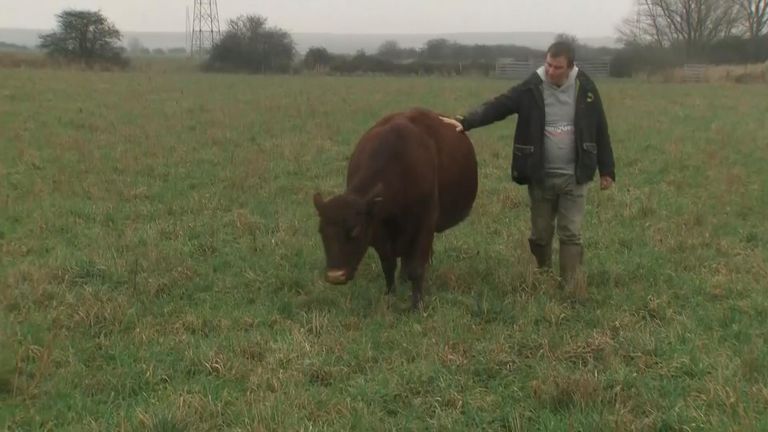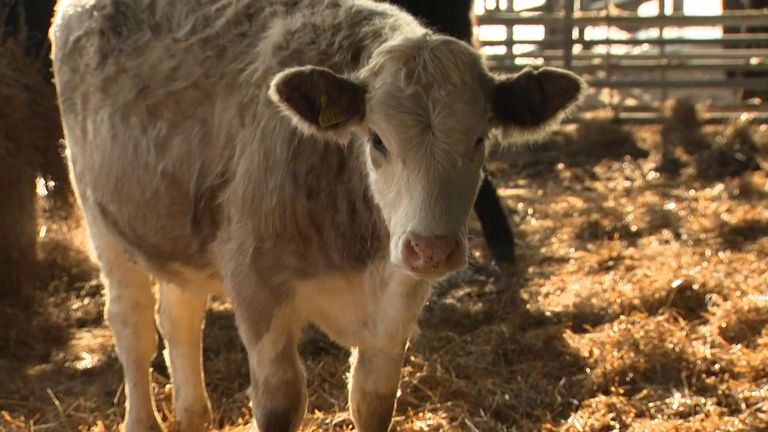
Brexit: Free trade deal with Australia could endanger livelihoods in UK, farming groups warn
Farming groups have warned that a proposed free trade deal with Australia could imperil livelihoods.
The concerns come as the prime minister chaired a meeting of senior ministers to discuss the impact of removing tariffs on imported Australian produce including beef and lamb.
The meeting follows tension within the Cabinet, including between Trade Secretary Liz Truss and George Eustice, the agriculture secretary, over whether to grant Australia tariff-free access to UK consumers.
The UK is eager to strike a free trade deal with Australia by next month to demonstrate that it is capable of forging new economic opportunities having left the European Union.
The deal is intended to increase the volume of trade between the two countries above the current £20bn, but it also matters because it will set the terms for future negotiations with other nations, including the US.
Agriculture is likely to be at the heart of all these deals as the UK’s large market is highly attractive, while domestic producers are still adjusting to post-Brexit trading regulations and unclear how EU subsidies will be replaced.
Farmers fear they will not be able to compete with imports from Australia, where much larger farms, and what some claim are lower welfare standards, enable cheaper production.
There is particular concern among farmers and the devolved governments in Scotland and Wales, where beef and sheep farming is crucial to local economies.
Martin Kennedy, president of the National Farmers Union Scotland, told Sky News: “We’re extremely concerned about this deal because this is the first deal that the UK is actually doing as a standalone and we’re concerned about the possibility of undermining our markets.
“For obvious reasons, they [the government] want to be able to see the UK ‘taking back control’ and making its own trade deals, but we must make sure that our own industries are protected.
“We’re really worried that an oversupply of product coming in from areas like Australia could undermine our food production systems.”
Tim Thompson farms an organic herd of Old English Longhorn cattle on 200 acres of pasture in Oxfordshire, with all the beef sold within 10 miles of the farm gate.
He acknowledges that low intensity, high-welfare operations like his would not be viable without subsidies, and fears that tariff-free access to beef from Australia, and other volume producers, could damage UK farmers.
“They obviously have economies of scale, and while they may not be subsidised, that gives them a singular advantage. Any competition would be bad for me, even though I am selling directly,” he said.
“Consumers are fickle. And I couldn’t afford to carry on if it was cheap beef coming into this country, it’s as simple as that, it doesn’t matter whether it’s from Australia or Brazil or the US.”
The Australian industry insists the UK has little to fear from a free-trade deal given the limited current volumes, and huge distances involved.
Australia has not used its entire beef import quota in recent years and was responsible for just 0.15% of UK imports last year.
Some 14% of sheep meat imports were from Australia.
Tony Mahar, of the Australian National Farmers Federation, said: “We want to be as competitive as we possibly can, but we don’t want to devastate, disadvantage or unnecessarily damage UK farmers.
“We see ourselves as a niche product, we do see some opportunities there, but suggestions that we’re going to flood the market are absurd, frankly.”
Subscribe to the All Out Politics podcast on Apple Podcasts, Google Podcasts, Spotify, Spreaker
Former Australian foreign minister Alexander Downer told Sky News the objections from UK farmers were being stoked by political opportunism in the devolved administrations, and that the deal offered the UK with a choice: does it want to be a genuinely free-trading nation, or a protectionist country still tied to Europe.
“It’s up to UK. We Australians are happy to do a free-trade deal and live with the consequences, which we think would be pretty good, but it’s an important test of the UK’s trade credentials,” he said.
“Should the UK continue to give preference to Europeans, and close the door to the outside world, or should the UK have a global approach and not just give preference to EU countries, but to other countries like Australia offering free access. That’s the question for the UK government.”
Source: Read Full Article


